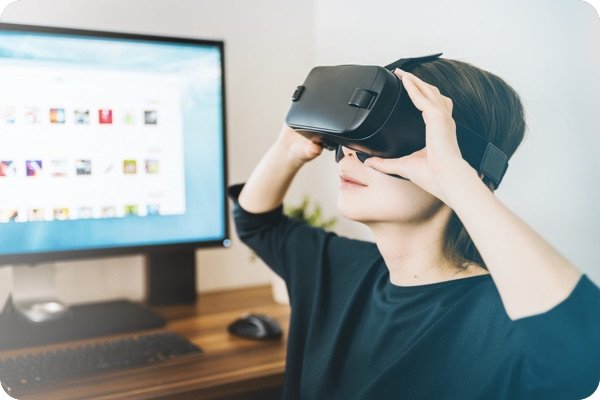
Often we have heard people saying ‘live in the present. Or should we say that we can live a happy life by enjoying the present moment? No doubt being “present” may help in combating chronic pain and stress and improve the general wellness of an individual. On the contrary, some research suggests the opposite. In other words, we can easily face challenging circumstances by doing exactly the opposite which means that it may be advantageous not to be ‘present’.
How Can Virtual Traveling Heal You?
In today’s scenario when Covid-19 fatigue is peaking, this concept of ‘not living in the present’ or ‘transporting’ ourselves to either past or future or at least to a different moment in time is desirable, if not imperative. The idea is to transport ourselves mentally to a better h a pleasant atmosphere so that our mind becomes refreshed again and thus more capable of coping with today’s pain. It is a way of escaping our day-to-day reality through our imaginations – if only vicariously – to improve our mental well-being.

Harvard University researchers Randy Buckner and Daniel Carroll, researchers of Harvard University, call this method of self-projection ‘mental time travel’. Endel Tulving, a leading pioneer in research related to memory, is acknowledged as the first psychologist to talk about the unique human ability to detach ourselves from the present surroundings.
Self-projection empowers us to travel both backs in the past and forward in the future through time. For instance, we might relive an argument from the past with a relative scene by scene, or imagine the manner of our behavior in an upcoming job interview. Recently just a short while back, neuroscientists have presented before mankind a discovery of a shared neural architecture that underlies these mental simulations. The pattern underlying brain activity as one engages oneself in cognitive detachment from the present has become famous as the default mode network.
With restrictions in travel and necessary social distancing, people feel like practicing self-projection. As a psychologist said that once during his last social gathering, he and his 3 friends sat down together in below-freezing temperatures in one of their favorite restaurants in the city of New York. They had gathered there in an attempt to catch up with holiday time. They were imagining what will happen when the borders open and restrictions lifted off and travel and anybody could travel anywhere. Each one was asked which destination would he like to go then.
This question sparked too much excitement. Voices were rising as someone shared their intention for traveling to Costa Rica for taking a crack at surfing in the Playa Grande, which is quite a popular destination among the surfers. We have traded past these travel stories, laughed about this time when one of us had swum, screeching, through the bat inhabited caves in the Playa del Carmen, Mexico.
At that moment, we saw the blue of the ocean, and everyone could taste this cold Cerveza that is served at the local beach bar. We all indulged in listening to their plans for traveling to the far-flung destinations. In that instant, we were no longer present there, but, rather, had been transported to another place and time.
If we would imagine ourselves in Costa Rica on the beach, it still feels like we would be there. We can smell this ocean and can also feel the sun on our heads. We have left behind this current world and simulated an experience that is quite a different one.
Projecting this we find ourselves in the desired future at the moment that can serve the purpose of the much-needed escape. This can also be said to be quite inspiring.